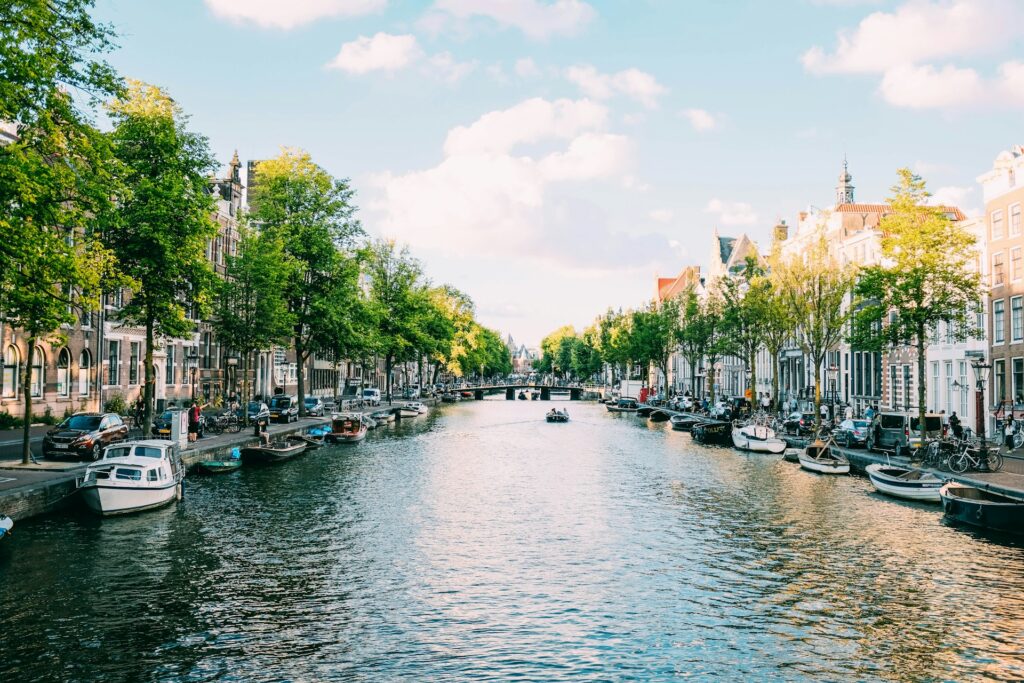The Dutch government has expanded its regulated cannabis production experiment to ten cities as it looks to optimize the quality, quantity, and diversity of cannabis available in coffeeshops while addressing issues arising from the dual legality of sales and illegal production. The experiment also hopes to reduce criminal activities associated with illicit cannabis production in the Netherlands.
Dutch Cannabis Legalization Experiment Expands Nationwide


In December 2023, the Dutch government launched an experiment in regulated cannabis production aimed at supplying coffeeshops with legally produced cannabis. As of Monday, this initiative has expanded nationwide, now encompassing ten cities with the goal of streamlining the process and ensuring safer, better-controlled distribution of cannabis products.
For more news like this, along with all the latest in legalization, research, and lifestyle, download our free cannabis news app.
Expansion of the Dutch Cannabis Experiment
The Dutch cannabis experiment now extends to eight additional cities: Groningen, Zaanstad, Almere, Arnhem, Nijmegen, Voorne aan Zee, Heerlen, and Maastricht. This expands the initial phase that began in Breda and Tilburg at the end of last year. The primary goal of this phase is to “optimize” the “quantity, quality, and diversity” of cannabis products available in cannabis cafés, commonly known as “coffeeshops.”
The coffeeshops in these cities will now be permitted to sell both illegal cannabis and cannabis produced by licensed growers.
Currently, three Dutch suppliers are fully operational in producing regulated cannabis, and authorities are hopeful that two more will commence operations by September.
If this timeline is met, the 80 Dutch coffeeshops participating in the trial will be able to sell only legal products from that month. This measure is crucial to achieving the experiment’s goal of gradually phasing out the so-called “gedoog” policy.
The Historical Context of Dutch Cannabis Policy
This policy, introduced in the 1970s, decriminalized the possession of small amounts of cannabis and allowed for the creation of licensed points of sale.
However, it simultaneously prohibits production and wholesale sales, creating a “front door, back door” system. While Dutch consumers can legally buy cannabis in coffeeshops, production and supply chains remain illicit, leading to significant criminal activities.
Addressing Crime and Safety Concerns in the Netherlands
This Dutch system has led to numerous problems, including theft, violence, and money laundering. Additionally, consumers often lack information about the exact composition of the cannabis they consume, posing health risks that healthcare services cannot manage effectively.
Paul Delpa, mayor of Breda and a strong advocate for a regulated system, emphasized that the fundamental goal of the experiment is safety. In an interview with Dutch News last year, Delpa stated, “Dutch cannabis policy is quite sneaky. People can legally buy it in coffeeshops, but the production of the cannabis and the purchase part (the back door) for shop owners are illegal. This means there is a large criminal world that thrives by producing the cannabis and selling it to the shops. This needs to change.”
Legislative Support and Future Implications
Despite concerns from the new Dutch government coalition, a majority of MPs voted against the far-right PVV party’s proposal to halt the experiment. Additionally, a proposal to include Amsterdam’s eastern district in the trial was rejected at the last minute.
The success of this experiment could pave the way for a fully regulated cannabis market in the Netherlands, setting a precedent for other countries facing similar issues. By addressing the gaps left by the “back door” policy, the Dutch government hopes to create a safer, better-controlled environment for cannabis production and consumption.
—
(Featured image by Adrien Olichon via Unsplash)
DISCLAIMER: This article was written by a third-party contributor and does not reflect the opinion of Hemp.im, its management, staff, or its associates. Please review our disclaimer for more information.
This article may include forward-looking statements. These forward-looking statements generally are identified by the words “believe,” “project,” “estimate,” “become,” “plan,” “will,” and similar expressions. These forward-looking statements involve known and unknown risks as well as uncertainties, including those discussed in the following cautionary statements and elsewhere in this article and on this site. Although the company may believe that its expectations are based on reasonable assumptions, the actual results that the company may achieve may differ materially from any forward-looking statements, which reflect the opinions of the management of the company only as of the date hereof. Additionally, please make sure to read these important disclosures.
First published in Newsweed, a third-party contributor translated and adapted the article from the original. In case of discrepancy, the original will prevail.
Although we made reasonable efforts to provide accurate translations, some parts may be incorrect. Hemp.im assumes no responsibility for errors, omissions or ambiguities in the translations provided on this website. Any person or entity relying on translated content does so at their own risk. Hemp.im is not responsible for losses caused by such reliance on the accuracy or reliability of translated information. If you wish to report an error or inaccuracy in the translation, we encourage you to contact us.



Comments are closed for this post.